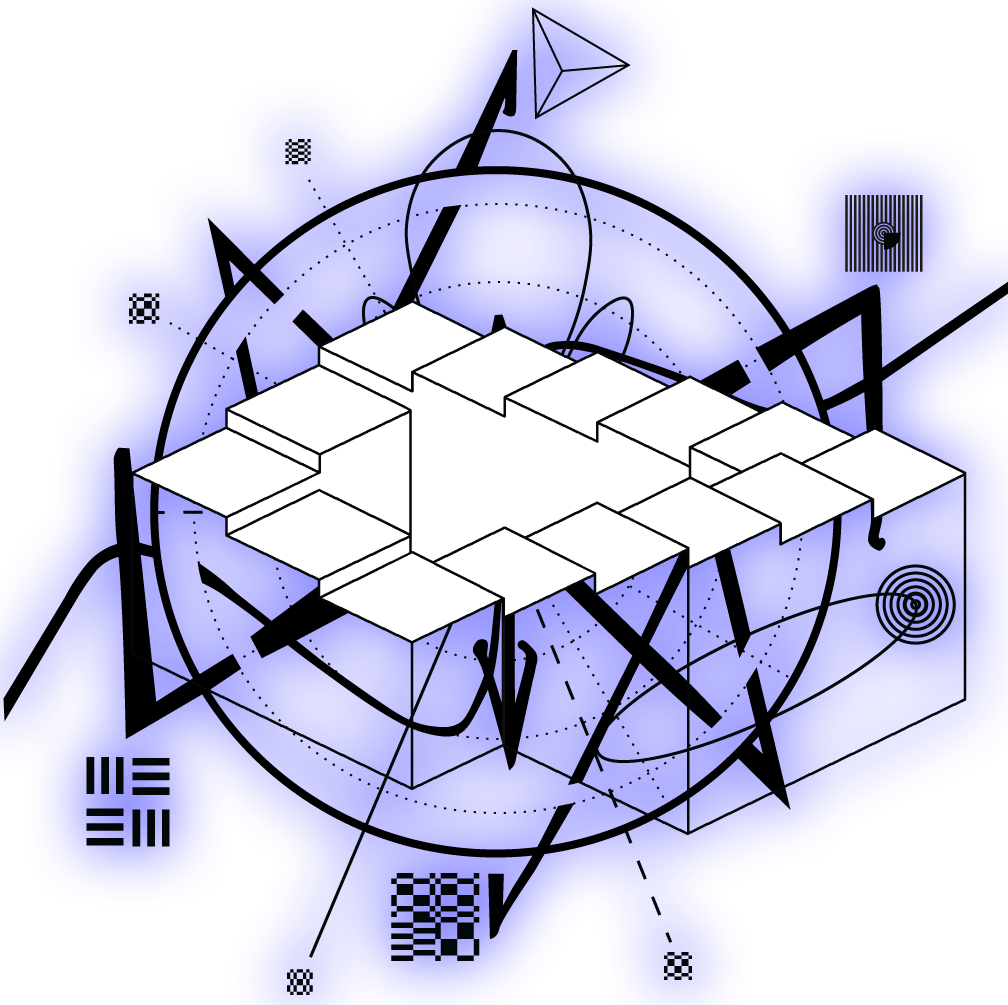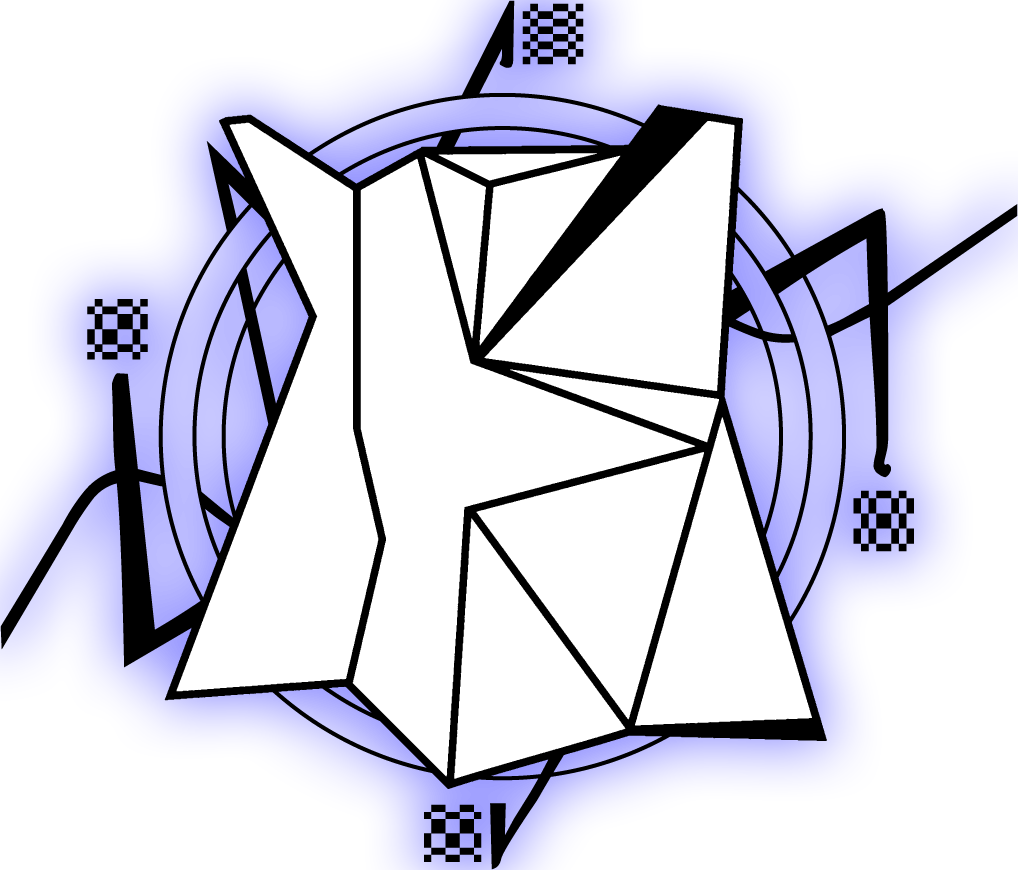Shredded Hologram Rose (2023)
Transformations in the image render pipeline extend beyond artificial augmentations like “super-resolution” in devices such cellphones, which refers to the process of introducing additional patterns and details to the image that may not have a real-world origin.
The hyperimage may orginate from the real word, but is expanded by synthetic (computer generated) render layers that transform it into a dynamic, modular object. The hyperimage does away with the notion of a static image. Instead, the hyperimage is procedural construct, where some layers may even be rendered seperately; at clients end and remotely, fragmenting the image as a distributed, evolving, decentralized networked process consisting of assets that can be partially (re)rendered, on demand or progressively.
Moreover, synthetic images are increasingly rendered by machines for machines, particularly in the realm of computer vision.
Unlike traditional Visual Effects (VFX) and Computer-Generated Imagery (CGI), which enhance images for human perception, these synthetic images prioritize machine interpretation over human perception, blurring notions of fidelity, value, and legibility even further.
Computer vision and Generative Adversarial Networks (GANs) use synthesized datasets to train on. A process that redefines the traditional scope of capture (which used to be constrained by spectral, spatial, or temporal parameters) introducing synthetic datasets as a new parameter of scope.
This process of recursive synthesis ultimately leads to ‘limitless’ quantitative (but not qualitative) resolution:
synthetic resolution is optimized for efficiency and automation, but alienates the human viewer as it transforms visual information into constructs that no longer resemble a traditional image.
The hyperimage may orginate from the real word, but is expanded by synthetic (computer generated) render layers that transform it into a dynamic, modular object. The hyperimage does away with the notion of a static image. Instead, the hyperimage is procedural construct, where some layers may even be rendered seperately; at clients end and remotely, fragmenting the image as a distributed, evolving, decentralized networked process consisting of assets that can be partially (re)rendered, on demand or progressively.
Moreover, synthetic images are increasingly rendered by machines for machines, particularly in the realm of computer vision.
Unlike traditional Visual Effects (VFX) and Computer-Generated Imagery (CGI), which enhance images for human perception, these synthetic images prioritize machine interpretation over human perception, blurring notions of fidelity, value, and legibility even further.
Computer vision and Generative Adversarial Networks (GANs) use synthesized datasets to train on. A process that redefines the traditional scope of capture (which used to be constrained by spectral, spatial, or temporal parameters) introducing synthetic datasets as a new parameter of scope.
This process of recursive synthesis ultimately leads to ‘limitless’ quantitative (but not qualitative) resolution:
synthetic resolution is optimized for efficiency and automation, but alienates the human viewer as it transforms visual information into constructs that no longer resemble a traditional image.


But the Angel recalls how additive complexity once drove the DCTs into kernel panic. This time, it is her who is trapped in the Upgrade Paradox, and here, no North or horizon will save her.
She studies the endless vectors of the SPOMENIK glitch, when momentarily a hint of a PenRose-Stairs breaks through. Although fleeting, this vision of order allows her to deduce that her inability to resolve must stem from one of two causes: flawed data or lack of protocol.
Cautiously, she traces the Spomenik’s dynamic edges through thick deposits of poor-resolution sediment.One shredded side opens to a viewport, offering a glimpse into a repository of render objects.
Like a media archaeologist from the future, she attempts to reconstruct a PenRose Stairs, but the synthetic data, locked in machine-defined standards, produces nothing but a blue haze of noise. She sighs: machine vision made for vision machines...
If her tools can’t resolve this, she will need to find another framework. In a last-ditch effort, she scans frequencies that she normally mutes. When she tunes into a quiet C-band channel, she detects a faint echo: a CyCLOPS.cy corner-reflector, a technology that is part of a geospatial array that tracks surface deformations.
She feeds the SPOMENIK data into the CyCLOPS network, and immediately the system starts running adversarial comparisons between generator and discriminator modules, computing phase differentials, gradually imposing coherence to her disjointed data.
Slowly, the misalignments around her dissolve, and to her surprise, an im/possible image renders...
She studies the endless vectors of the SPOMENIK glitch, when momentarily a hint of a PenRose-Stairs breaks through. Although fleeting, this vision of order allows her to deduce that her inability to resolve must stem from one of two causes: flawed data or lack of protocol.
Cautiously, she traces the Spomenik’s dynamic edges through thick deposits of poor-resolution sediment.One shredded side opens to a viewport, offering a glimpse into a repository of render objects.
Like a media archaeologist from the future, she attempts to reconstruct a PenRose Stairs, but the synthetic data, locked in machine-defined standards, produces nothing but a blue haze of noise. She sighs: machine vision made for vision machines...
If her tools can’t resolve this, she will need to find another framework. In a last-ditch effort, she scans frequencies that she normally mutes. When she tunes into a quiet C-band channel, she detects a faint echo: a CyCLOPS.cy corner-reflector, a technology that is part of a geospatial array that tracks surface deformations.
She feeds the SPOMENIK data into the CyCLOPS network, and immediately the system starts running adversarial comparisons between generator and discriminator modules, computing phase differentials, gradually imposing coherence to her disjointed data.
Slowly, the misalignments around her dissolve, and to her surprise, an im/possible image renders...

Spomenik 2017.
Giant cairn of glitch, a monument commemorating no specific moment or entity.
4x4 meters projection mapped wooden installation.
As installed and produced by Transfer Gallery New York, for Behind White Shadows, on the surface: DCT SYPHONING.
 A Hologram PenRose-Stairs to Nowhere
A Hologram PenRose-Stairs to Nowhere.
 Giant cairn of glitch (REFRACTIONS, 2024, WIP)
Giant cairn of glitch (REFRACTIONS, 2024, WIP) Shredded Hologram PenRose to Nowhere
Shredded Hologram PenRose to Nowhere(REFRACTIONS, 2024, WIP)
CyCLOPS Retina
(in collaboration with Kimchi and Chips, commissioned Install for Thin Air @The Beams, 2023)
////////////////////////////Refractions (2023)
is research project done in the framework of my European Media Art Platform residency at NeMe, Limassol, Cyprus.
(in collaboration with Kimchi and Chips, commissioned Install for Thin Air @The Beams, 2023)
////////////////////////////Refractions (2023)
is research project done in the framework of my European Media Art Platform residency at NeMe, Limassol, Cyprus.
.

 ALEV 01 + ALEV 02
ALEV 01 + ALEV 02 
 AKMS01 + AKMS02
AKMS01 + AKMS02 
 SOUN01 + SOUN02
SOUN01 + SOUN02
 ASGA01 + ASGA02
ASGA01 + ASGA02 
 MATS02 + MATS01 -
MATS02 + MATS01 -
 TROU01 + TROU02
TROU01 + TROU02 IN MILITARY ZONE
